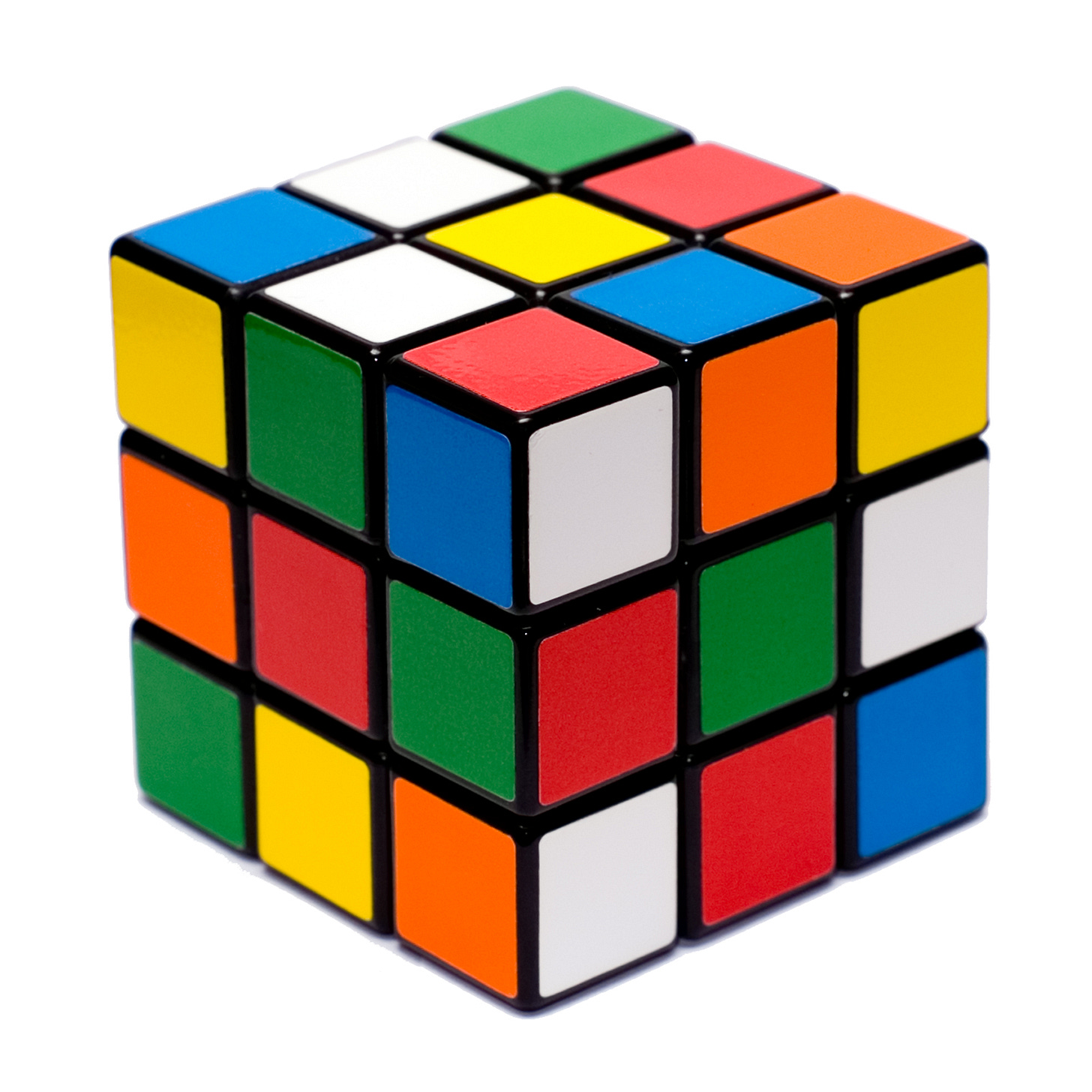A quick note, we’re mid-way through my series on wealth. Make sure you’re subscribed to remain on-board that trainwreck…
This is not strictly part of that series; it’s mostly just something I’ve been thinking about. But it’s relevant.
It also briefly acknowledges the existence of self-harm and some other dark subjects. Take care of yourselves.
Years ago I read a book called ‘Start with Why’ by a marketing consultant called Simon Sinek. Honestly, it was pretty good—I’m happy to recommend it if you want a light and sensible take on how you could be approaching marketing. It’s also been in print now for over a decade, and the subject of several TED and TED-adjacent talks, so I don’t think I’ll be spoiling anything if I save you a few extra clicks, by summarising what it’s all about.
The basic gist of it is, rather than starting with “what” an object is—for example, a “wireless speaker”—you start with “why” the object should exist.
If you start with “why”, you might conclude you want to make beach parties ‘blow up’ (or however else young people describe great beach parties now!). And then, extra for experts, you squeeze in a “how”, to describe the process that led you from the ‘awesome beach parties’-why, to the eventual “what” (our aforementioned “wireless speaker”).
In simple terms, the “why” makes you credible; and the “how” lends authenticity to your journey. And that means, by the time you announce the “what”, you’ve already got a captive and loyal audience, ready to receive whatever it is you’re going to put in their grabby hands!
I’ve found it’s actually a good way to think about a lot of things in life. For example, if you start with “why”, it’s much more difficult to justify that extra slice of cheesecake, compared to if you just start with the (delicious) ‘what’!

Anyway, that’s a total aside, because I’m not actually planning to talk about either marketing or cheesecake at all here. But I do want to talk about ‘why’.
You’ll no doubt recall, in school, spending a bit of time discussing the Six Critical Questions:
Who?
What?
When?
Where?
How?
Why?
Then, when you make it to higher education and the wider world, they remain there—just below the surface—whenever you read a story, or try to solve a mystery, or plan a marketing campaign or a birthday party. They are a useful way to understand a situation from multiple angles:
Who is involved? What is being done? When is it happening? Where is it happening? How are we going to do it? Why do we need it?
Those deceptively simple questions actually end up getting remixed into all sorts of other tools and jargon, mostly to sell corporate and self-help books: Stuff like SWOT or PESTLE analysis, not to mention all the various Rules, Lists, and Meditations of the self-help industry (I’m not linking to any of that shit). But when you trim any of that stuff right back to its basics, they all simply seek to uncover an objective ‘truth’ about a person or team or situation. And, through that truth, give you an easy step-by-step guidebook to the questions of who, what, when, where, and how.
Which brings me neatly back to “why”.
Why, in my mind, is by far the most interesting and human of the critical questions. It tends to get lumped in with the others, but it is different in an enormously important way: It is subjective.
Let’s duck aside again quickly…
We use these words, ‘objective’ and ‘subjective’, a lot now but, like Alanis Morrisette and a whole generation with the word “ironic”, I’m not actually sure people really understand what they mean. So, just for clarity:
When something is objective, it means there is no doubt about it—everyone is on the same page.
When something is subjective, different people are likely to have their own take on it, because looking at it from different angles results in a different view of it.
It’s like the difference between looking at a perfectly-uniform sphere, and looking at a Rubik’s Cube.
The thing is, humans are sometimes incentivised to describe smooth and round things in our world as puzzles to solve.
Let’s try some:
Humans need oxygen to survive - objective, or subjective?
2 + 2 = 4 - objective, or subjective?
The Covid-19 vaccine is safe - objective, or subjective?
Climate Change is a man-made phenomenon - objective, or subjective?
…See what I mean?
Now, cards on the table, I’m in the ‘objective’ camp on all those. But clearly it’s not that simple for everyone. The Covid-19 vaccine has been perfectly safe for me in all my experience of it to date. But, I know plenty of other people have internalised stories that suggest to them it’s a long way off being safe… And that’s before we even start on the nanobots and mind-control fantasies!
The fact is, despite the growth of our collected-knowledge, the number of things we can all agree on—objective things—will shrink in a world where controversy is rewarded.
But, it’s also reasonable to point out—even with controversy being rewarded—the who-what-where-when-how in any situation will still always remain objective, provided we all experience it the same way; and are honest with each other about it.
The “why” though? That, in my opinion, is largely responsible for every problem, and every achievement, experienced by humanity.
Think about it. Does any other species ask ‘why’?
A seagull is looking at your sandwich and going:
“what is that!? Fuck-me, it’s a sandwich!”…
“where is he putting the sandwich?”…
“how do I get to the sandwich?”…
“who is my competition for the sandwich?”…
“when should I strike?”…
It doesn’t even occur to the seagull1 to ask “why do I want a sandwich?”, or “why is that thing called a ‘sandwich’?”, or “why do I feel hungry?”, or “why don’t I take this pent-up-hunger-adrenaline and go build an amazing sandcastle to impress my sea-brethren with?”
Every discovery we make began with a “why”
“Why are those things twinkling in the sky?”
“Why don’t the rest of my woolly-mammoth hunting-party know what I’m thinking?”
“Why can I see the explosion before I hear or feel it?”
And, equally, every horror:
“Why do those people all seem to have it easier than me?”
“Why shouldn’t I be in charge?”
Starting with why can lead to a whole load of dark and painful answers to the ‘who, what, where, when, and how’ questions that follow.
Because, both the allure and terror in every ‘why’ is that it forces us to confront several possible responses.
“Why should I have to work while others can just live on welfare?” could be answered:
‘because they are lazy and stupid’, or
‘because they have complex lives that I can’t see into, and which might prevent them from taking the opportunities I can’, or
‘why indeed! It’s unfair and I’m going to put a stop to it!’
“Why don’t women like me?” might lead you to
‘because women are stupid whores who deserve to be disrespected!’, or
‘because I haven’t been honest with them or myself about what I can offer them’, or
‘because I’m ugly and useless and no-one will ever love me!’
But the question ‘why’ is even more powerful than that, because it is infinitely extensible. If you were child-adjacent in the early 1990s you’ll likely have been aware of the cartoon show ‘Animaniacs’, and the character Mindy, whose catch phase “why?” demonstrated this perfectly.
Of course, if you’ve ever had kids of your own, you’ve likely experienced this in real life as well. But, even if you’ve never been a child or seen children, it still works. Someone says something:
“I’m heading to the shops”
And you say “Why?”
“To get milk”
“Why?”
“To make a cup of tea with”
“Why?”
“Because I’m thirsty”
…you get the picture. It can basically go on forever… or at least until someone gets angry!
Now, language is just a technology we invented to express and share our internal worlds with each other. So, we shouldn’t get too bogged down with the word ‘why’ itself, and instead ask ourselves “what is ‘why’ doing?”
And this is where things get deep. What I think ‘why’ is doing is expressing foundational human optimism: A base for possibilities.
I’d describe myself as an optimist—I’ve got children, so it largely comes with the territory! That kind of optimism—for your own future or the future of people you love; and the other, more altruistic, kind—optimism for the whole of humanity’s future— are already very different things. Indeed, the self-proclaimed most evidence-driven optimists—the Effective Altruist movement—are more than happy to sacrifice people you love to protect people who might never exist…
That’s maybe a topic for another newsletter.
What I’m talking about here though is a third kind of optimism.
If we jump back to the seagull again, he’s not thinking years into the future. He’s not asking ‘why’ something is, or was, and setting about understanding it or progressing it for his grand-chicks. That mindset requires a more fundamental optimism—an unconscious expectation of continuity. It’s not linked to any single human, or even to collected humanity.
I think of it like a battery in an electronic device; it doesn’t do anything, either on its own, or functionally for the device. It doesn’t need to know what functions its energy enables—indeed, the same battery could run 1000 different devices, each with 100 different functions.
But it does need to be there to allow the device to do what it does.
Our human foundational optimism is what powers the human drive to create and interact and dream but—unlike the other, more conventional, definitions of optimism—it doesn’t actually require any conscious thought or action from us.
Humans are born with minds that reach for the future. We know this because we plant trees and build cathedrals we will never live to enjoy. We also know it because we are, as far as science is aware, the only species that loses thousands of lives annually, tragically, when a person’s fundamental drive turns from surfacing optimism to surfacing doubt and despondency.
When we ask ‘why’, we are reaching into the future. And, because we ask ‘why’, we have a different justification for being alive than other species do. Other species may understand something of mortality, but they appear unable to imagine the myriad possibilities and generations, places and extrapolations, that we can, and do.
And so, this foundational optimism also represents one other important thing:
Responsibility.
As we creep ever-closer to god-like powers, we need to take that seriously.
-T
To be fair, I haven’t experienced life as a seagull so I’m making some assumptions!






